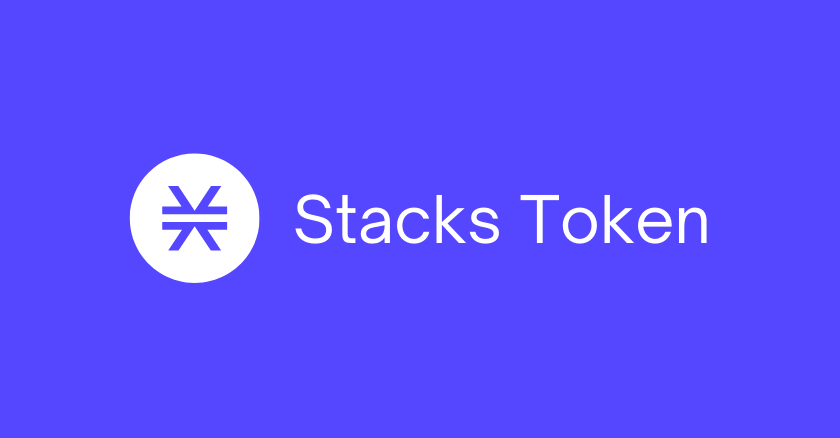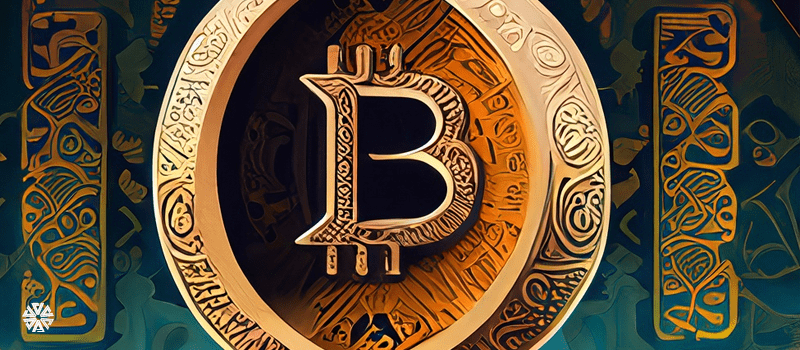Is Stacks Halal: Is STX Crypto Coin Halal?

In this article we do a complete Shariah screening of Stacks to determine if STX is a halal or haram cryptocurrency. The short answer is yes, Muslims may trade and invest in STX, but have a read and see if you are comfortable with our assessment first.
What is Stacks?
Stacks is a cryptocurrency that seeks to unlock the full potential of the Bitcoin blockchain by combining smart contracts and decentralized applications with Bitcoin.
Originally called Blockstack, it was rebranded to Stacks in 2020. It was designed as a layer-1 solution that uses Bitcoin as its base layer. The platform is powered by the Stacks (STX) token, which powers the processing of transactions, the movements of smart contracts, and the registration of new digital assets.
Because Stacks is a layer-1 ecosystem based on Bitcoin, the smart contracts it provides for Bitcoin do not let Blockchain change anything about Bitcoin, including its safety and security that make it so popular.
Stacks dApps are arranged and are modular, so developers can add features to one another without coding. Everything that takes place in the Stacks ecosystem is backed by the most secure blockchain available on the market.
Further details on Stacks website
Is Stacks Halal: Is STX Crypto Coin Halal? We’d Love to Hear Your Thoughts
Sharing the collective wisdom of thousands of Muslim crypto traders and investors.
Stacks Technology
The Stacks ecosystem can be broken down into five different elements:
- Stacks Blockchain
- Smart contracts
- Gaia data storage system
- Stacks authentication
- Stacks libraries and SDK.
The Stacks ecosystem is the coordination layer for the Stacks Ecosystem. It allows for the storage of user IDs and smart contract processing as well as the maintenance of the Stacks token. The first version of the blockchain used by Stacks operated on Bitcoin ($BTC) and recorded transactions directly to the blockchain through the use of a proof-of-burn mechanism. For version two Blockstack will introduce a second blockchain that uses Tunable Proofs for consensus.
In order to establish a productive chain that uses multiple inputs and assigns weights to each one, Tunable Proofs make use of the chain’s previous work. In order to bootstrap their blockchain by making sure it has adequate hash power at the start, Stacks will rely on a heavy weighting on the previously used Proof-of-Burn model and Proof-of-Work (PoW). Based on the available hashpower for the Stacks blockchain, weightings can move toward PoW once sufficient resources are available.
The Atlas Peer Network functions as the storage space of the Stacks blockchain network, also known as Loom Network. The objective of the network is to store full data duplicates to enable load reductions in the Loom chain. Many blockchains try to store all existing data directly on an in-chain Chain store. When the latest data needs to stored off-chain, they remain stored there in Atlas.
Clarity smart contracts Stacks has introduced a new smart contract language called Clarity. Clarity focuses primarily on security and privacy and, therefore, is not Turing-complete for individual transactions and is interpreted by the virtual machine. Such systems, even though they are written in code, may crash for unanticipated reasons. The absence of Turing completeness makes it possible for static analysis which gives detail on exactly what it costs to carry out smart contracts and the general behavior of contracts before they are executed.
Gaia storage system offers scalability and user privacy with Gaia. Gaia is an optional configuration to use with Stacks that lets users store data in an encrypted manner, in private. It is stored on a user’s choice, such as in the cloud or local device storage. The Stacks blockchain, along with Atlas, stores keys that provide users access to their sensitive data. Information is encrypted when stored and only accessible to those who decrypt it using their cryptographic keys.
Stacks’ authentication system permits automatic authorization of applications and retrieving data by users who do not otherwise interact with video editing software. When a user logs in to an application using Stacks, the user’s client automatically authenticates the user without them having to enter a password and, therefore, doesn’t need to perform server-side authentication procedures such as 0Auth. A Stacks ID is used to automatically access any application on the platform.
Stacks libraries and SDK In Stacks, the SDK and technology used by the Stacks browser are combined to give developers access to a feature library and a user-facing browser which acts as a digital certificate, app browser, and identity manager.
Legitimacy Screening of Stacks
Stacks was co-founded by alumni of Princeton University, Muneeb Ali and Ryan Shea, in 2013. Ali began work on Stacks after he graduated in mechanical engineering and computer science and continues to work on the platform as CEO of Hiro PBC. Ryan Shea, the co-founder of this platform, oversaw the company as co-CEO in 2013, ceding that post in 2018 to begin his own business. He claims to be dedicating his efforts to developing solutions to problems that are plaguing society today.
The response to this problem is that the internet has become increasingly controlled by big companies. Stacks was developed as a response to this shift. Muneeb laid out his vision for the future of the world wide web in a 2016 TEDx talk and outlined the design for a new trust-to-trust model for the web in his PhD thesis at Princeton that year.
This gives us the confidence to confirm that Stacks has an underlying fundamental value, that can be considered as “Mal” under Islamic rulings. Therefore, as a project it has legitimacy in terms of Shariah.
Is Stacks project aligned with Islamic values?
Yes, Stacks crypto project does align with Islamic values as it enables you to build apps, smart contracts, and digital assets that are integrated with Bitcoin’s security, capital and network. There is is nothing against Islam about such a technology.
Financial Screening of Stacks:
Financial screening ensures that the crypto asset meets the financial criteria for Shariah compliance, if it is an equity based token. Stacks is not backed by any equity, so there is no financial screening required on this coin/ token. Here we would typically look at things like debt to income ratio to ensure borrowing is limited to a tolerable level.
STX Token Screening for Shariah Compliance
Token Type: Native
Token Uses: Payments
The fundamental use case of the Stacks cryptocurrency (STX) is to pay for P2P networking and contract development. Stacking participants are rewarded for encouraging the growth of the Stacks network by seamlessly Boosting the network’s consensus, even if they lock STX tokens.
The supply is not limited, but there should be roughly 1.8 billion STX in circulation by 2050. Currently, there are over 1.3 billion STX tokens in circulation.
This token has a utility that is permissable under Shariah so Stacks’ STX token is considered halal.
Is Staking STX Halal?
When you stake Stack, you earn bitcoin that miners transfer as part of Proof of Transfer, for Stacks’ unique consensus mechanism. This reward mehanism does not contain Riba, Gharar, or Maisir and therefore staking Stack is halal.
What Does The Muslim Crypto Community Think of STX?
Crypto Halal Office for Monitoring and Sharia auditing on cryptocurrency markets thinks Stacks: STX coin is a Halal digital asset based on its Shariah complaince screening.
Sharlife considers Stacks: STX as a halal cryptocurrency based on the five areas assessed for Shariah complaince screening.
If you know of other academic or scholarly views on this, please add in comments and we will update accordingly. Alternatively, you may want to join our community of Muslims crypto investors and traders, to share, learn and profit from halal digital assets.
Is Stacks Halal: Is STX Crypto Coin Halal?
Yes, Stacks: STX crypto coin is Halal as it is an open-source platform that supports the blockchain, DeFi, NFTs, and apps for Bitcoin. Stacks blockchain is a stacked “layer” for Bitcoin, similar to Lightning Network. In addition to smart contracts, Stacks provides free software for authenticating and data storage. This technology is not against Shariah guidelines so Muslims may invest, trade and stake STX crypto coin.
We hope you found this useful. Please view our Halal Crypto List to find suitable digital asset investments, without compromising your Islamic faith.


Baraka allaho fikom, what about Alex lab token built on top of STX ?